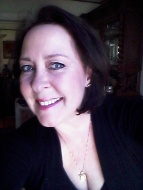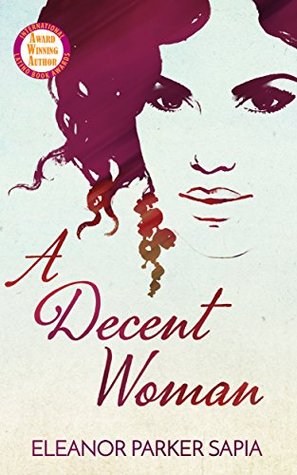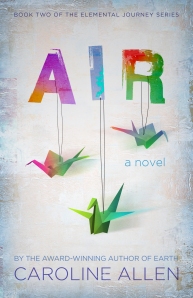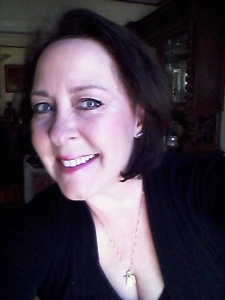Welcome to the Tuesday Author Interview series at The Writing Life blog. I am very pleased to welcome William Galaini, author of Trampling in the Land of Woe. It turns out we share the same editor and publisher, Ally Bishop at Scarlet River Press. I am happy to finally chat with William about writing, publishing, and his book.
Bio:
Everything is now Twitter. My bio will be 140. Vet, married, bonkers son, four cats, crushing insecurity. Out of room to explain myself. Sad.
Welcome, William!

What is your book’s genre?
Hmmm… historical neoclassical fantasy literature? With romance. And even a bromance.

Please describe what Trampling in the Land of Woe is about.
Book blurb – As World War I rages on Earth, Hephaestion, lauded general and soul mate of Alexander the Great—and now a citizen of Purgatory—embarks on the darkest, most challenging journey of his existence: descending into The Pit of Hell to rescue his king. Chased by Hellbeasts, hunted by Jesuits, and aided by unexpected allies, Hephaestion tests the bounds of loyalty, dedication, and even death as he faces the greatest demon of all: himself. A blend of steampunk and Dante Alighieri’s The Divine Comedy, Trampling in the Land of Woe drives through the cobblestoned streets of New Dis, soars above The Pit in airships, and then stumbles down into the terror-ridden rings themselves. Steam-powered trains, zeppelins, and ornithopters zoom by in a mash-up of literary proportions, all to answer one question: What will one man do to understand the meaning of love and truth?
Envision a steam-punk Dante’s Inferno for the setting. In that setting, Hephaestion breaks into Hell in an effort to rescue his lover and king, Alexander the Great. Throughout his journey he encounters various historical figures and personalities that either aid or hinder his efforts. This all occurs while the first World War occurs on the surface of Earth, so we have dirigibles, paddleboats, cannons, and locomotives.
Sounds like an intriguing read. How did you come up with the title?
Milton’s Paradise Lost has several passages that refer to Hell as a land of woe. The thought of an ancient Greek cavalry general like Hephaestion kicking in Hell’s door to descend its rings of torment brought the verb ‘trampling’ to mind.
What inspired you to write this book?
….. okay this might be embarrassing. A DND session. Well, technically the gaming system we used is called Savage Worlds. This system lets you establish the setting in any way you like, so I build the setting of Dante’s Hell in 1910 so that my players had trains to ride and zeppelins to fly. So my gaming group and I used my setting as a narrative playground for about a year. From that, I plucked story elements, conflicts, and plots that captivated everyone the most. Trampling is the first novel from this.
While the specific characters we played don’t make a showing in the novels, many of their challenges do.
I had to look up ‘DND session’–Dungeons & Dragons. I can see real merit (and fun) in the creative sessions you and your gaming buddies enjoy; especially for writers of fantasy, dystopian, and steam punk stories.
What is your favorite part of writing?
Being done. At least, being done before the next round of edits and revisions. At that moment you feel the marvelous sensation of growing power and overcoming adversity.
Does your main character resemble you? If so, in what ways?
Not really. Hephaestion is a handsome, capable man driven by principals. He is patient, temperate, and focused. I am NONE of those things.
I will confess that Hephaestion’s caretaker, a German from Purgatory with bad gambling habits named Yitzhak, is exactly like me. His sarcasm, observations, and reckless idealism causes all kinds of trouble but also often saves the day.
What do you find is the most challenging aspect of writing?
I likely have a different answer for this question each time I’m asked, so here is my current one: patience. I can pound out a novel once a year and that includes six to seven months of research. Granted, I’ve got eleven novels planned out and I spend years outlining them, but once I’ve finished my first draft my patience VANISHES. I become impatient with my cover artists, my editors, my layout artist, and my publisher. I do my best to contain this tiny, embarrassing monster of mine, but sometimes my editors or artists will get a rambling voicemail message that entails a combination of my raging impatience and my apologies regarding such.
I’m impatient with the team that makes a book happen because I’m ignorant of what they have to do to make my book a reality. This childishness embarrasses me.
I appreciate the candid answer, William. I remember growing impatient with my first book until I discovered what each of the team member’s important projects entailed on the road to publication. Thank God I listened to my gut, my editor, and that we didn’t rush to publish; it would have been a disaster.
What was the last book you read? What did you think of it?
Enemy at the Gates. It was about the siege of Stalingrad. I was engrossed in it for both its detail and humanity. I had chosen the book to read for research for an upcoming novel that involves a city under siege. Just before Enemy at the Gates, I had read The 900 Days, which was equally haunting.
My next book will be fun. I’ve got my eye on Ready Player One. I hear it is a good read.
My writing mentor recommended the film version of Enemy of the Gates for dealing three alternating POVs; it’s a super film. I just ordered the book.
Who are some of your favorite authors?
I’m a fan of books, but some of my favorites are written by Ken Follett, M.M. Kaye, Isaac Asimov, and I love Milton and Pope’s prose.
What authors or person(s) have influenced you as a writer and why?
Mom. Yeah, it is cliché but completely true. Mom had me reading science fiction like I, Robot and Rama as a kid and I gobbled it up wholesale. My stepmother, Mutti was also a huge reader and she got me into contemporary works like Terminal Man and some John Grisham.
My wife also. She is always there next to me in the car or the kitchen when I’ve got an idea. She is the first barrier all ideas and character elements have to pass through in order to make it to the page. Ginger actually doesn’t read my books because, frankly, she just doesn’t have to. She watched me mix the thing and bake it in the oven. No need to taste it to know it is good.
How nice to have that instant feedback. Do you have a favorite place to write? To read?
We have a couch that is actually long enough for me to splay myself out on. I look like I’m ready for Jack to paint me like one of his French girls. That is the BEST place to get my read on.
As for writing, I just need a proper keyboard, a chair, and either headphones or silence.
Okay, now I won’t be able to get through that scene in Titanic without thinking of you sprawled out on the couch, waiting for Jack. Too funny. Tell us something personal about you people may be surprised to know?
I’m not as insecure as I profess to be.
Did the writing process uncover surprises or learning experiences for you? What about the publishing process?
I learned a lot of self-acceptance in writing. There are no mistakes to be made in writing. You literally will not do anything wrong when you write…
…until you publish. Publishing is where mistakes are made, not the writing. Publishing too early or without revising properly are both brutal mistakes that I have paid for.
Do not be impatient when publishing. Allow the various stages of double-checks to occur. The hindrances you face in publishing your book will make it more refined.
Couldn’t agree more. What do you hope readers will gain from your book?
Meaning and fun. I explore heart-break and deeper themes via the proxy of adventure. I hope that, on the surface, the reader is satisfied with a good time but upon reflection, they ask themselves the questions that motivated the story.
Looking back, what did you do right that helped you write and market this book?
I didn’t stop.
What didn’t work?
Awesome question. Well, a number of things. First off, I had a preconception of the book being a lone journey and I kept trying to force it into that mold. My dev editor, Ally Bishop, wisely aimed me toward focusing not on character in the narrative, but on relationships. This brought a close friendship between Yitzhak and Hephaestion and through that relationship a lot of the story’s themes and conflicts became far more vivid and engaging.
Secondly, I had a hard time finding the rhythm of my syntax. I still struggle with it now, but it took a lot of proof editors to help me polish it.
Ally is the real deal. She encouraged me to change the original ending of my book, smart lady. Any advice or tips for writers looking to get published?
There are no mistakes in writing, only in publishing. That is my axiom.

Website and social media links?
Williamgalaini.com
@wgalaini on Twitter
https://www.facebook.com/WilliamLjGalaini/
Where can we find your book?
My, so glad you asked! Amazon, Barnes and Noble, and ask for it at your local library.
What’s next for you, William?
Part two for Trampling is already done and it is awesome. Boudica is the main character in the sequel. I’ve just started part three!
Great interview, William. Thanks for chatting with me. Best of luck with your books!
About Eleanor:

Puerto Rican-born Eleanor Parker Sapia is the author of the award-winning historical novel, A Decent Woman, published by Scarlet River Press. Her debut novel, set in turn of the century Ponce, Puerto Rico, garnered an Honorable Mention for Best Historical Fiction, English at the 2016 International Latino Book Awards with Latino Literacy Now, and was selected as a Book of the Month by Las Comadres and Friends National Latino Book Club in 2015. A writer, artist, and photographer, Eleanor is never without a pen and a notebook, and her passport and camera are always ready. Her awesome adult children are out in the world doing amazing things. Eleanor currently lives in Berkeley County, West Virginia, where she is working on her second novel, The Laments of Forgotten Souls, set in 1920 Puerto Rico.
Eleanor’s book: http://amzn.to/1X0qFvK
Please visit Eleanor at her website:
www.eleanorparkersapia.com





 Ana Belén Opaku, an Afro-Cuban born into slavery, is a proud midwife with a tempestuous past. After testifying at an infanticide trial, Ana is forced to reveal a dark secret from her past, but continues to hide an even more sinister one. Pitted against the parish priest, Padre Vicénte, and young Doctór Héctor Rivera, Ana must battle to preserve her twenty-five year career as the only midwife in La Playa.
Ana Belén Opaku, an Afro-Cuban born into slavery, is a proud midwife with a tempestuous past. After testifying at an infanticide trial, Ana is forced to reveal a dark secret from her past, but continues to hide an even more sinister one. Pitted against the parish priest, Padre Vicénte, and young Doctór Héctor Rivera, Ana must battle to preserve her twenty-five year career as the only midwife in La Playa.





